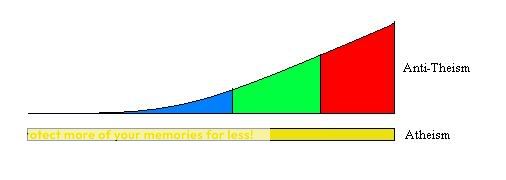Copernicus
Industrial Strength Linguist
Where do you come up with all this? Atheism isn't a denial of anything, it's not an assertion of anything, and it's not a belief in anything. And in the absence of theism you're left with atheism.
It would be fair to ask you where you come up with your definition, but I suppose we can turn to dictionaries for arbitration. Just about every dictionary I am aware of calls atheism a belief or a claim that gods do not exist. Negative claims are still claims. Not taking any position at all on the existence of gods is a lack of belief, but atheism is actually a negative claim. It only makes sense as a response to theism.
I think that we're talking about the same thing here, and I am disagreeing with you for the reasons stated in the OP and my responses to you. So far, you are just denying my claim. I have no problem with that, but can you back up your claim with a reference? Dictionaries are useful, although they have their flaws. What determines word meanings is purely usage, and the word "atheism" is typically used to describe the belief that gods do not exist.No, no, no! Obviously we're discussing two entirely different things. Why would it be a stretch to call someone completely ignorant of God or gods, or a baby, or a Cocker spaniel athiet? They're epitome of athiest!
I think that you've taken the claims of some weak atheists a bit too literally. Weak atheism is still a denial of the existence of gods, but its claim is based purely on an assumption of lack of evidence. I believe that you are confusing lack of a belief with the lack of a claim, but those are very separate things. Anyone who denies something lacks belief in it, but not vice versa.What you're talking about is some kind of dogmatic Strong Atheism.
Some people split atheism into non-belief, or Weak Atheism and a positive disbelief, or Strong Atheism, but the basic, unadorned essence of atheism is a simple non-belief -- Weak Atheism.
I think you'll find that atheists themselves are split over the weak/strong dichotomy, but some of us have come to believe that it is a somewhat specious distinction. Myself, I think of weak atheists as people who would rather knock down the arguments of theists than get involved in trying to disprove the existence of gods to the theist's satisfaction. In arguing with believers, one usually encounters the position that theism is the default position. Strong atheists are those who tend to accept the challenge that gods are disprovable on empirical grounds. While all atheists qualify as 'weak atheists', both camps assert the belief that gods do not exist. People who take no position on the existence of gods are usually called 'agnostics'.
Last edited:

